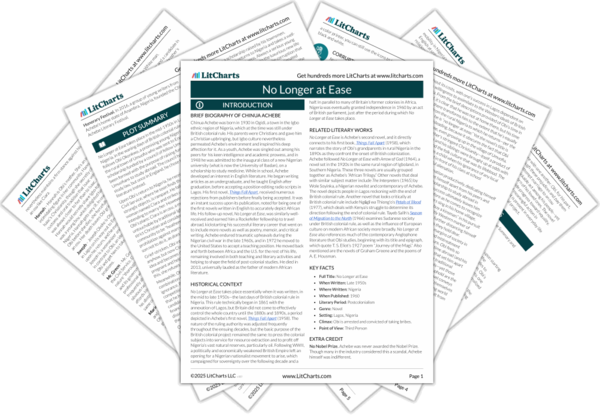Chinua Achebe was born in 1930 in Ogidi, a town in the Igbo ethnic region of Nigeria, which at the time was still under British colonial rule. His parents were Christians and gave him a Christian upbringing, but Igbo culture nevertheless permeated Achebe’s environment and inspired his deep affection for it. As a youth, Achebe was singled out among his peers for his keen intelligence and academic prowess, and in 1948 he was admitted to the inaugural class of a new Nigerian university (what is now the University of Ibadan), on a scholarship to study medicine. While in school, Achebe developed an interest in English literature. He began writing articles as an undergraduate, and he taught English after graduation, before accepting a position editing radio scripts in Lagos. His first novel,
Things Fall Apart, received numerous rejections from publishers before finally being accepted. It was an instant success upon its publication, noted for being one of the first novels written in English to accurately depict African life. His follow-up novel,
No Longer at Ease, was similarly well-received and earned him a Rockefeller fellowship to travel abroad, kickstarting his successful literary career that went on to include more novels as well as poetry, memoir, and critical writing. Achebe endured traumatic upheavals during the Nigerian civil war in the late 1960s, and in 1972 he moved to the United States to accept a teaching position. He moved back and forth between Africa and the U.S. for the rest of his life, remaining involved in both teaching and literary activities and helping to shape the field of post-colonial studies. He died in 2013, universally lauded as the father of modern African literature.
